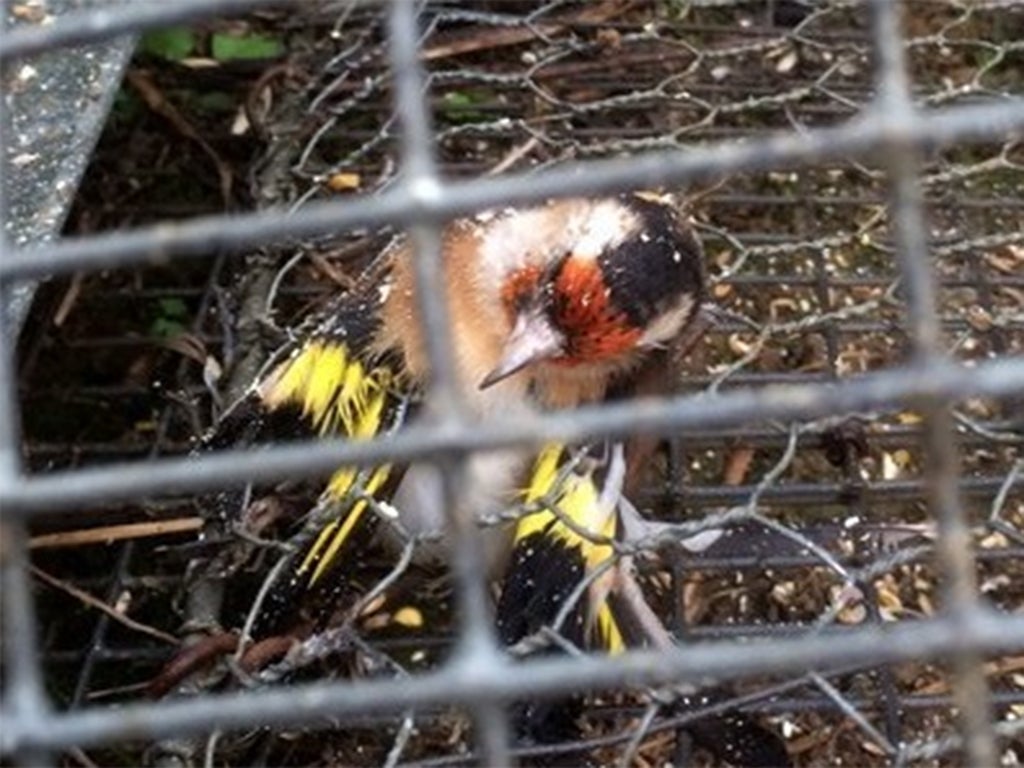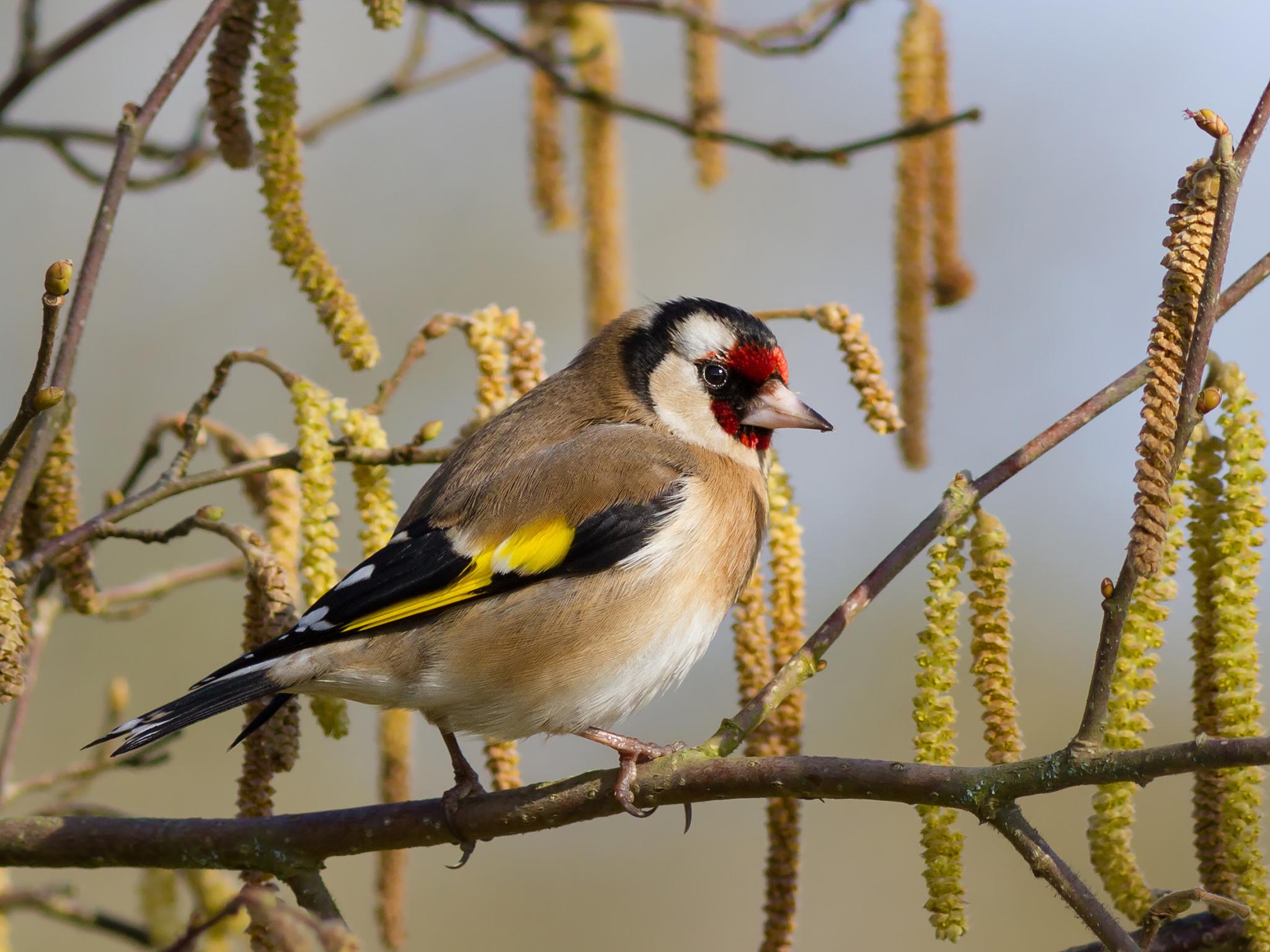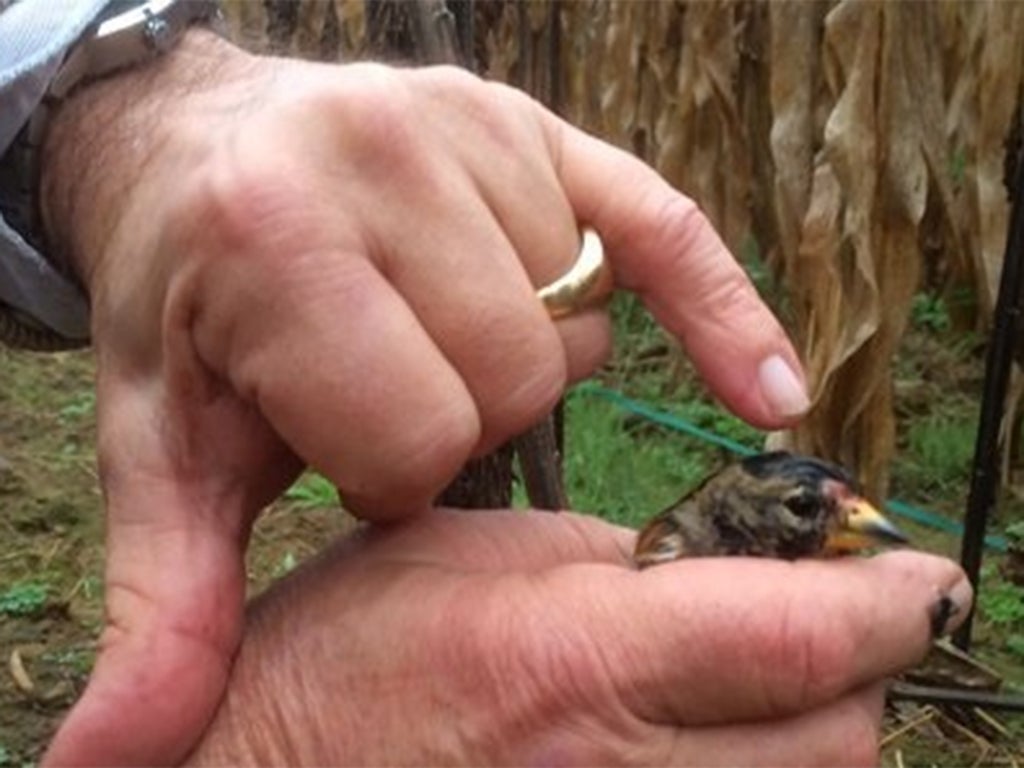Organised crime finds a new type of contraband: goldfinches

Your support helps us to tell the story
From reproductive rights to climate change to Big Tech, The Independent is on the ground when the story is developing. Whether it's investigating the financials of Elon Musk's pro-Trump PAC or producing our latest documentary, 'The A Word', which shines a light on the American women fighting for reproductive rights, we know how important it is to parse out the facts from the messaging.
At such a critical moment in US history, we need reporters on the ground. Your donation allows us to keep sending journalists to speak to both sides of the story.
The Independent is trusted by Americans across the entire political spectrum. And unlike many other quality news outlets, we choose not to lock Americans out of our reporting and analysis with paywalls. We believe quality journalism should be available to everyone, paid for by those who can afford it.
Your support makes all the difference.The scene is the criminal court in Perpignan in south-west France. The defendant has just been sentenced to 15 days in prison and a €2,800 fine for trafficking in an illegal commodity.
He is shocked by the severity of the sentence; his lawyer is shocked; even the prosecution is pleasantly shocked.
What was the defendant’s crime? Selling cannabis or contraband cigarettes? No, he was convicted of trapping and selling goldfinches.
Trafficking in western Europe’s prettiest small bird has reached epidemic proportions in France in recent years. It is estimated that a single, tiny goldfinch can sell for €150, or €10 per gram of weight – the same price as cannabis.
The business has become so lucrative that organised crime gangs are adding it to their business portfolio, alongside drugs, women and arms. In one recent raid on a goldfinch poaching team in eastern France, police found black Islamic State (Isis) flags in their hideout.
Goldfinches are much prized as a caged songbird in North Africa but also in France and Belgium. A male goldfinch mated with a canary can produce a hybrid or “mule” capable of winning singing competitions which can be sold for many hundreds of euros.

Many (but by no means all) of the new poachers and traffickers are of North African ethnic origin. Most of them are not politically radicalised. Some, it seems, are. A common code name used in illegal trading in the birds on the internet is “Osama”.
The population of goldfinches in France has fallen by 55 per cent in the past dozen or so years, partly because of loss of habitat and the effects of pesticides but partly because of systematic trapping for breeding or sale.
The goldfinch, or chardonneret elegant (elegant thistle-eater), used to be regarded as a common bird across the Channel. It is estimated that there are still 1.5 million breeding couples left in France. This is less than half the population recorded in 2001.
Since 1979, the capture or killing of goldfinches has been illegal throughout the European Union. Trapping for sale also happens in parts of Britain but goldfinch numbers in the UK are increasing.
In September, the goldfinch (Carduelis carduelis) will be added to the “red list” of the French nesting birds regarded as threatened with extinction in the medium term.
Didier Donadio, the director of policing at the French national office for hunting and wildlife (OFNCFS), said: “The traffic has exploded without precedent in the past five years. We are still putting all the pieces of the jigsaw together but we are obviously dealing with several organised networks, with Belgium often the final destination.”
Bertrand Warnez, the head of the OFNCFS in the Nord department around Lille and Dunkirk, said that the new goldfinch hunters are often “people known to the police for involvement in other crimes”.
An official in the French environment ministry told The Independent that the “ethnic and social identity” of the new generation of goldfinch poachers and traffickers was a “sensitive subject”. “There has always been a low-level trade which was mostly white and rural,” the official said. “But the explosion in poaching and trafficking in recent years seems to be traceable partly, although not entirely, to gangs from the banlieues [the poor, multi-racial suburbs which surround most French cities].”
The goldfinch is a tiny bird which has a pale gold back and chest, a red, black and white head and bright, yellow flashes on its wings. Its colouring is often hard to appreciate in the garden or the woods. Seen at close quarters – in a cage for instance – it is spectacular.
The male goldfinch has the misfortune to be one of the few European birds to be both pretty and a wonderful singer. Its song is said to have been one of the main influences on Andalusian folk music. It is prized by unscrupulous cage-bird lovers in France, Belgium and North Africa for itself – but also as a stud to mate with canaries – another breed of finch.

“The situation is very worrying,” said Frédéric Jiguet, a member of a team which studies bird populations for the museum of natural history in Paris. “Urbanisation and the end of farming set-asides and the disappearance of stubble in fields has taken away winter feeding grounds for grain eaters like the goldfinch. And now there is this mass poaching.”
To catch goldfinches, the hunters use a mixture of new technology and old, cruel methods. At one time, a goldfinch in a cage was needed to attract others. Now, a smartphone hanging from a tree playing the sound of a singing goldfinch is often used.
Twigs nearby are smeared with glue, Goldfinches settle and become stuck. As many as a dozen goldfinch are trapped at one time.
Some become so badly stuck that they are torn apart by the poachers in frustration. Females are often killed and discarded as less valuable. Many birds die in their first few days in captivity.
Ornithologists reckon that nine goldfinches die for every one that is successfully sold. All the same, a determined poacher can earn as much as €800 in a day.
Allain Bougrain-Dubourg, president of the Ligue pour la protection des oiseaux (LPO), told The Independent: “There is obviously an international traffic going on, but many of these birds are also sold surreptitiously from car boots near the caged bird market in Paris.”
“The destruction of goldfinches is just part of a wider destruction of birds in France. Our members in the south-west recently found scores of goldfinches which had been killed and discarded by trappers because they were hunting for ortolans.”
The ortolan is a form of bunting which is regarded as delicacy in parts of France, cooked and eaten whole, feathers and all. The incidental slaughter of goldfinches by ortolan hunters is a neglected part of the problem, Mr Bougrain-Dubourg said.
In 10 French departments, all in the south of the country, glue traps remain legal. A new law to protect bio-diversity is wending its way through the National Assembly but politicians from the south of France are blocking a clause which would outlaw glue traps. And an LPO petition on line which calls for a nationwide ban on glue in bird hunting has attracted 320,000 signatures
French wildlife law enforcement officials insist that they have been given greater resources to track the bird hunters. Recent court rulings suggest that the French justice system is more willing to crack down on the perpetrators after years of tolerance.
Mr Bougrain-Dubourg says that these developments are welcome but inadequate. A small cannabis dealer faces a five-year jail sentence. A wild bird poacher faces a maximum of one year in prison but the full sentence has never been applied. The two-week jail term handed down in Perpignan recently was regarded as a breakthrough.
The French authorities fail to treat goldfinch trafficking as the serious, organised crime that it has become, says the LPO. A few lower-level poachers are caught but there are many bigger birds still in the bush.
Join our commenting forum
Join thought-provoking conversations, follow other Independent readers and see their replies
Comments